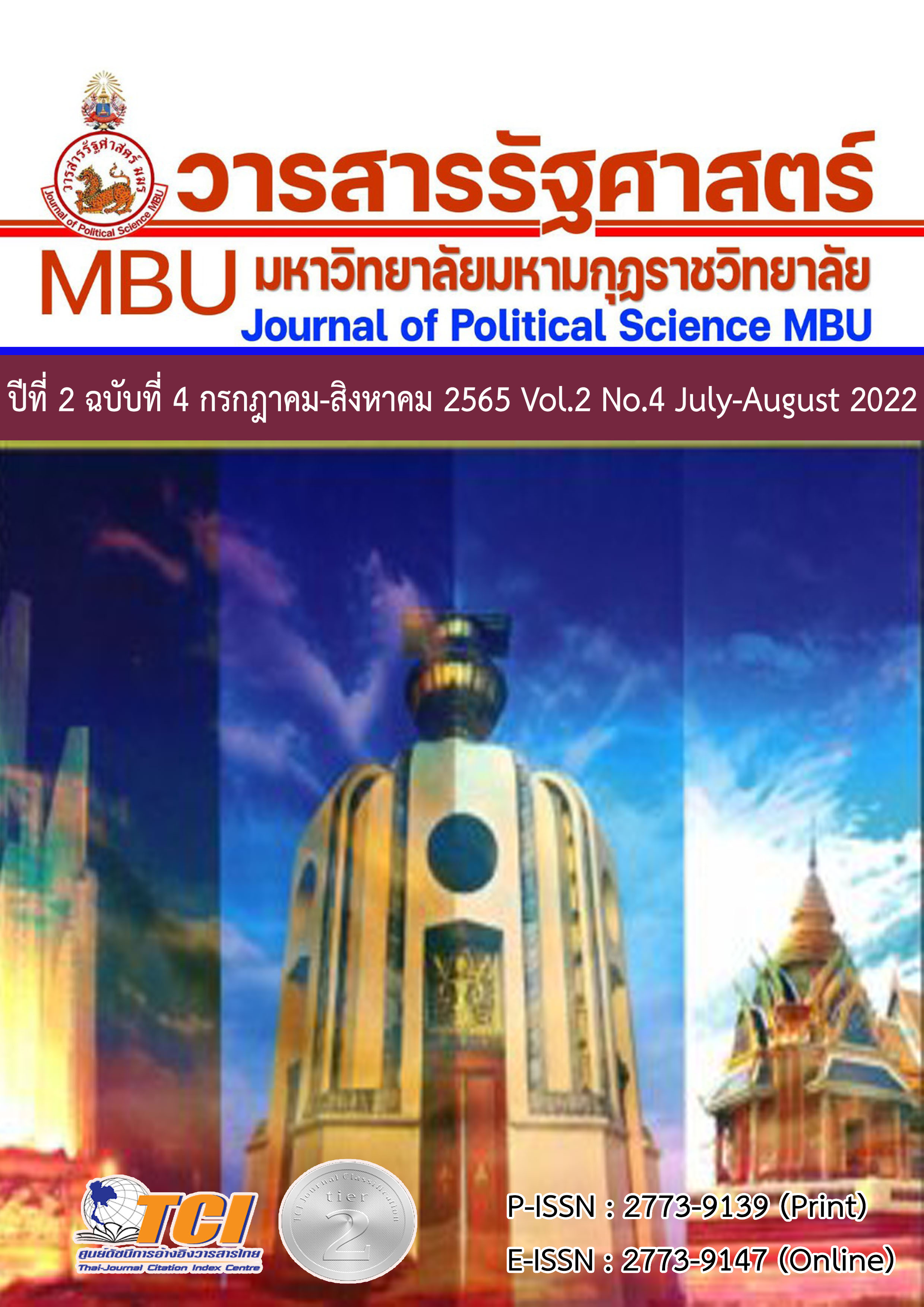THE ADMINISTRATION OF EDUCATIONAL INSTITUTIONS ACCORDING TO THE FOUR BHAVANA DHAMMAS OF THE ADMINISTRATORS OF THE PHRAPARIYATTIDHAMMA SCHOOLS UNDER THE OFFICE OF PHRAPARIYATTIDHAMMA EDUCATIONAL SERVICE, DEPARTMENT OF GENERAL EDUCATION AREA 7
Main Article Content
Abstract
This research article for: 1) to study the conditions of educational institution administration according to the Four Bhāvanā of the administrators of Phrapariyattidhamma Schools Department of General Education, Area 7; 2) to study the level of educational institution administration according to the Four Bhāvanā of the administrators of Phrapariyattidhamma Schools, Department of General Education, Area 7; 3) to propose guidelines for educational institution administration according to the Four Bhāvanā of the administrators of Phrapariyattidhamma Schools,Department of General Education, Area 7. This research was a mixed method consisting of 1) quantitative research. A questionnaire of 177 people was used. Data were analyzed using percentage, mean, standard deviation 2) qualitative research. Using an interview form, 5 people were used to analyze content data. The research results were as follows: 1) The results of a study on the condition of the school administration It was found that administrators, teachers, when classified by status Most of the villagers were 110 people, representing 62.1%, were monks, 67, 37.9%, position level, most were teachers 101 people, 57.1%, 76 administrators, 42.9% educational level. Most of them were 129 people with bachelor's degrees, 72.9%, and 48 postgraduate students 27.1%. Most of them had 11-20 years of work experience, 72 people, 40.7%, followed by 1-10 years, 71 people, 40.1%. Work experience 21 years or more, 34 people, 19.2% respectively. 2) The administration of educational institutions according to the principle of prayer 4, when considering each aspect, found that academic work with the highest average, followed by budget and general administration have the lowest average. 3) The guidelines for the administration of educational institutions according to the principle of prayer 4 found that the learning process was organized by arranging the content in accordance with the interests of the learners. Executives are good role models for their subordinates. equality promote learning ethical.
Article Details

This work is licensed under a Creative Commons Attribution-NonCommercial-NoDerivatives 4.0 International License.


